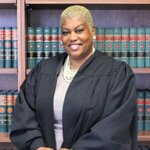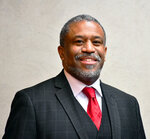 Narrowsburg
NarrowsburgLight Rain Fog/Mist, 43°
Wind: 8.1 mph
 Narrowsburg
NarrowsburgSULLIVAN COUNTY, NY— Four candidates are vying for three seats in the New York State Supreme Court Third Judicial District, where they will serve lengthy terms seeing both criminal and civil …
Stay informed about your community and support local independent journalism.
Subscribe to The River Reporter today. click here
This item is available in full to subscribers.
Please log in to continue |




SULLIVAN COUNTY, NY— Four candidates are vying for three seats in the New York State Supreme Court Third Judicial District, where they will serve lengthy terms seeing both criminal and civil cases and making countless impactful decisions across seven counties.
Sherri J. Brooks-Morton, Daniel C. Lynch, Richard Rivera, and Dana Salazar are competing to serve the district, which includes Sullivan County along with Albany, Columbia, Greene, Rensselaer, Schoharie, and Ulster. The term of office is 14 years. Election day is on Nov. 7.
The River Reporter spoke with each of the candidates about their motivations for running, legal backgrounds, and views of justice.
Sherri J. Brooks-Morton (Democratic, Working Families)
Sherri J. Brooks-Morton started in private practice and quickly realized it “wasn’t necessarily” for her. She grew up in the south end of Albany, where her neighbors were often caught up in the court system, and shared with Brooks-Morton their complaints about how it operated.This was what initially sparked her interest, she said.
“I was like, ‘What’s happening? I need to be more involved,’” she said. “So I applied for a job as a public defender.”
She was assigned to city court, where she “got to see the meat and potatoes of the court system.”
Currently, Brooks-Morton “wears three hats every day,” as she puts it – working in family court, county court, and state supreme court. She’s been serving in Albany family court since 2020 and also serves as an acting supreme court justice, where she helps to relieve big caseloads.
“Public service aspect has always been what I loved the most about it because you really do get to see the difference you make,” she said.
Brooks-Morton spoke about her character on the bench. “I’m very proud of my reputation,” she said. “I think everyone who comes into my courtroom will say that I’m fair, that I’m respectful, that, you know, my mother raised me in general to be a kind person overall.”
The decision to run for supreme court did not come lightly. “Unlike the other candidates, I was probably the one who was most unsure about whether or not I wanted to do this, and it was probably because I really love what I do,” she said, referring to her current service in family court. But, as she ultimately realized, “I have the ability to make an impact with families on a bigger level at the supreme court.” To get greater reach in helping families is what sealed her candidacy, she said.
If elected, Brooks-Morton will be the second Black woman in history to serve on the third district supreme court. Being a good role model is important to her. “I have four daughters, and I want them to know you don’t have to sacrifice your professional career to be a mom,” she said. “You can do all of these things. Women and moms—I think we just have entirely different perspectives, and it’s important to have that perspective on the bench.”
She told the River Reporter that “the people of Sullivan county have been so welcoming” when she’s visited. She said she’s been “very humbled and grateful for the support” and wants to “extend her public service on the supreme court bench.”
Running for office “has been a sacrifice” to her family, she said. “I’m doing it because I know that I want the world to be a better place for my kids to grow up in.”
Daniel C. Lynch (Democratic, Working Families)
Daniel C. Lynch has always deeply admired the role judges play in the judicial system. “It’s always something I’ve aspired to be,” he told the River Reporter.
Lynch has spent his career until now in public service. Working in the Albany County District Attorney’s office for 13 years is where “I really cut my teeth in the practice of law and became a litigator.” During this time he served as assistant district attorney and as the bureau chief of the financial crimes unit.
Lynch also has experience in civil law as attorney for Albany County. The office of 35 saw any civil case the county was involved in. He also served as deputy county executive during the onset of the COVID pandemic, which he said sharpened his “problem-solving in critical situations.”
“I have the right temperament, I have the right understanding of both criminal and civil law, I know how to resolve conflict,” said Lynch.
Albany County’s early participation in an opioid lawsuit is one of the accomplishments he’s most proud of during his time in the district attorney’s office. “That was such an incredibly impactful moment in my career, to be a part of something I knew was going to have an impact at some point,” he said—even though “it can never bring back a life. It’s never going to be enough money.”
He said the current U.S. Supreme Court provides an object lesson for voters. “What has happened over the last year plus from our highest court in the country shines a light on the need to put qualified individuals on all levels of the judiciary,” he said. “So I ask you to evaluate my experiences, and when you go to the polls on Nov. 7, strongly consider voting for me.”
Richard Rivera (Democratic, Working Families)
Richard Rivera’s judicial ambitions are personal. Raised in the Bronx, he felt that he was immediately regarded as a troublemaker. He remembers people saying, “‘Nothing good comes out of the Bronx.”
“I remember thinking that when I grow up I was going to be a judge, because then I would be fair and treat people with respect, and I would be good to the people,” Rivera said. He didn’t even realize at the time that to be a judge he needed to be a lawyer.
Rivera already serves as a judge in Albany family court and as an acting supreme court justice. “I believe I am fair, at least that’s what I try to do every time I take the bench,” he said. “And that’s what I believe a judge should be -- fair and just.”
He is the first Latino ever to be elected to any bench in the entire third judicial district. He has served as co-chair of the Franklin H. Williams Judicial Commission, working on programming about “how to become a judge to try to get more people, especially those of color, interested in becoming judges,” while also addressing community questions and concerns about the courts.
“When I got elected in 2014 as a family court judge, I wanted to do more than just see cases,” he said. “I wanted to make a difference in the 10 years that I had coming forward. I looked up how I could get involved in the court system, and that’s how I found the commission.”
Not only does he have many years of judging experience under his belt, Rivera said, but “he has the right temperament” vital to being a good judge.
Rivera said he does not prejudge people or prejudge cases that come in the courtroom but “simply hears what the facts are and makes a ruling based on the law.”
“Obviously as a person of color, as a Latino, I have a different perspective, and it doesn’t necessarily mean my ruling is going to be impacted by that,” he said. “But I do have a different perspective, as every judge does when you take the bench. Based on your history, past life, where you come from, there are things you might know, or might not know or understand because of that. I believe that all those things make me a good candidate for this position.”
Dana Salazar (Republican, Conservative)
Dana Salazar said she “just loves the law” and “loves practicing it.”
She founded the firm Salazar & Erikson, which specializes in civil litigation, and also does legal work for children and parents in Columbia County. She is the special appellate counsel in Rensselaer County, handling appeals on behalf of indigent criminal defendants and family court participants.
Salazar told the River Reporter she “thinks she can make a real difference on the bench.”
“One of the things I like most about my job, even as an advocate, is coming up with creative solutions for resolving cases in a way that makes everyone happy,” she said. “There’s an old saying that if you have a settlement and everyone’s unhappy, then you’ve done a good job. I think the opposite is true. If you have a settlement and everyone is satisfied, you’ve done a good job. I don’t know that people necessarily have to be upset. Obviously, a compromise is a compromise, but people can be happy with compromise.”
Civil litigation, a type of case heard in supreme court, has always been where Salazar “wanted to focus attention.” When she clerked for Judge Susan Phillips, she said she was “exposed to virtually all the types of cases that can be heard in a county,” providing her with relevant experience for the supreme court.
Salazar thanked the people of Sullivan County for making her feel welcome, calling the county a “shining star.”
She said justice is about fairness. She thinks of the scales of justice, and finding the point of balance between two differing positions. “Although,” she said, “any lawyer will tell you that fairness is not the defining factor in cases, and fairness is not how certain laws are structured. But, I think that in order to have balance in the broader sense on the bench, it’s important to have people with different backgrounds and different genders, have judges available that understand what it’s like to live in the country versus what’s like to live in the city, judges who have business experience, maybe judges who are landowners in the community.”
She said people who have life experience are better able to quickly understand a case and “bring justice a little bit quicker than someone who needs to be educated about all of the underlying issues.”
For information on voting for State Supreme Court Justice of the 3rd Judicial District and voting in general here.
For more information about the process of Judicial Election please see the River Reporter's article here.
Comments
No comments on this item Please log in to comment by clicking here